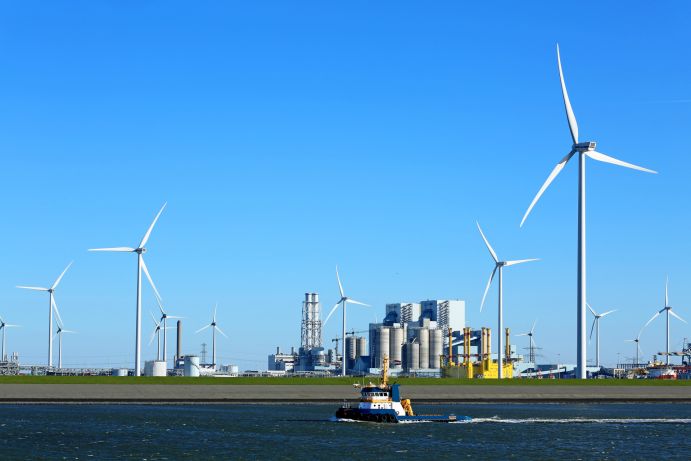Water-Energy-Nexus (WENex)
Water is indispensable for energy production, while the extraction and treatment of water is associated with high energy costs. Through the Water-Energy Nexus (WENex) funding measure, the Federal Ministry of Education and Research (BMBF) supports new technologies, concepts and business models that better link the energy and water sectors.
Water and energy are inextricably linked. The energy industry is responsible for around 50 percent of total water withdrawals in Germany, making it the largest single user of water. On the other hand, wastewater treatment plants are among the largest municipal energy consumers with around 4,000 gigawatt hours per year. The energy demand for water supply is similarly high.
However, investments in infrastructure and future technologies typically do not take into account the multiple interdependencies between the two sectors - the so-called water-energy nexus. New, innovative ways to strengthen synergies between the two sectors are therefore urgently needed. With the "Water-Energy Nexus" (WENex) measure, the BMBF is funding research, development and pilot implementation of innovative technologies and business models for a sustainable water and energy industry. Examples of possible focus areas are:
- Developing innovative solutions to reduce the energy demand for water supply and wastewater treatment by using the heat potential of water or chemically bound energy. In the best case, the water sector will be transformed from an energy consumer to an energy producer ("energy factory").
- Developing methods to store surplus energy from volatile energy sources (e.g. solar energy, wind power) in the water sector. New concepts should enable the water sector to be integrated into future smart energy networks.
- Developing new technologies and business models to reduce the amount of water needed to generate/store energy.
- New concepts for the use of alternative water resources (e.g. water reuse, closed water cycles) in the energy sector.
The projects, which generally run for three years, are expected to start in the summer of 2026. The BMBF is inviting internationally renowned experts in research, development and innovation in the water or energy sector from all GCC countries to get involved and matchmake with German experts to join project consortia. For details please refer to the online information and matchmaking platform b2.match.com.
The deadline for project outline submissions was September 30, 2025. Call details in English are available here. Further information and documents are available on the PTKA website.
Last updated on




